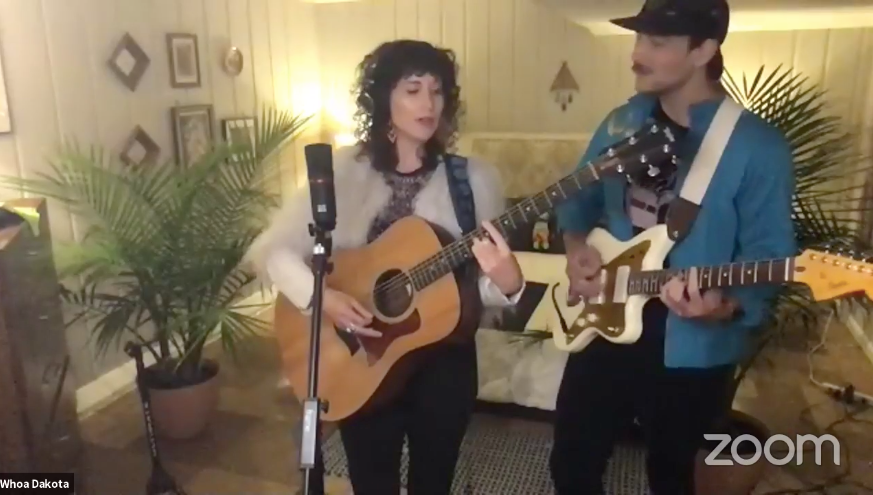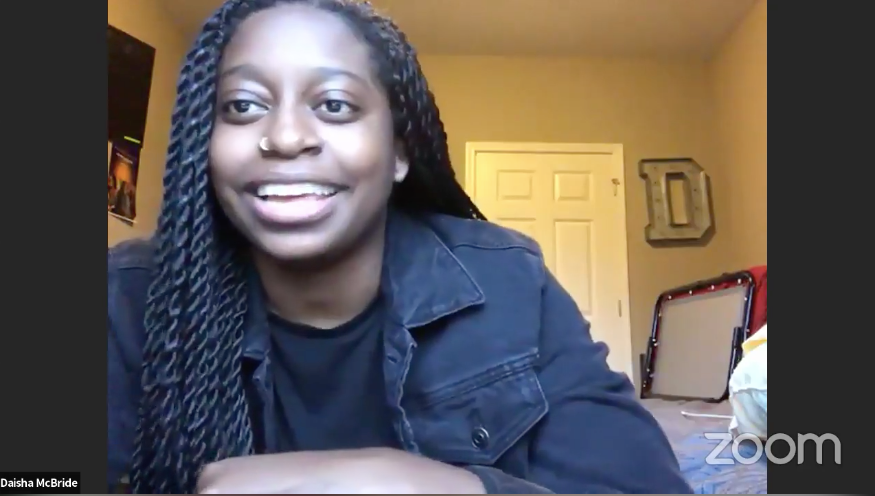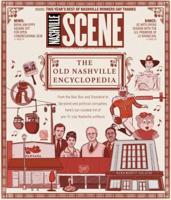
Whoa Dakota
When the pandemic shut down the live-music industry in mid-March, The Recording Academy’s health-focused nonprofit MusiCares took nearly immediate action by starting a COVID-19 relief fund. The fund has provided a safety net where, in many cases, there isn’t one, supporting numerous artists with canceled tours and many industry professionals who suddenly found themselves without a job. Thursday night, an affiliate organization called Nashville MusiCares Ambassadors held its inaugural Music City Showcase via Zoom to raise money for the cause while presenting a genre-diverse lineup of Nashville’s talent in bite-size sets.
The program was hosted by Recording Academy trustee and 102.1-FM The Ville program director Shannon Sanders, and began with a quick pop-in from Austin Grimm from the reggae band Roots of a Rebellion. In spite of a poor connection that resulted in glitchy audio quality, he banged out an acoustic version of “Shapes of a Soul,” the title song of the group’s 2019 album, as well as a tune written during quarantine.
Whoa Dakota’s Jessica Ott and Collin Gundry broadcast from their basement bedroom while decked out in glittery stagewear. They played the titular song from 2018’s Patterns as well as “Baggage,” a groovy dance track with jazzy electric guitar riding the Americana-meets-disco rhythm. Ott also mentioned the band’s forthcoming single “Walk Right By,” set to drop next week.

Daisha McBride
Standout MC Daisha McBride was seated at her bedroom desk, but she kept up the same high energy we saw at her Spewfest set earlier this year, one of her last live shows before COVID-19. Over a backing track, McBride rapped “Ballgame,” the introduction to her newest EP Yafeelme, switching into singing for the chorus. Her deft flow and melodic leanings were on display in “Top of the World.” While her shows are usually quite kinetic, this one felt more intimate while maintaining her positive mood.
Alanna Royale’s Alanna Quinn-Broadus is one of Music City’s best vocalists without a shadow of a doubt. The much-loved showstopper took the virtual stage from the music room of her home, backed only by guitarist Jared Colby instead of her usual expansive band setup. Before her set, Quinn-Broadus had a conversation with Sanders about how Black music has influenced her, sharing the story of how her Puerto Rican grandmother immigrated to Atlanta and became immersed in the culture, later passing on her love for soul and R&B to her. “The Ville is Americana music,” said Quinn-Broadus. “That is real folk music. That is real American music.”
Even without an audience to work with, she conveyed power and an easy grace. Belting out “I Know” from 2018’s So Bad You Can Taste It, Quinn-Broadus maintained supreme command of her voice. She made the song sound full, despite not having the benefit of her keys and horn section.

Alanna Royale
Pop singer and songsmith Whit, aka Whitney Coleman, doesn’t have a massive catalog of her own work out in the world, but she has worked with artists like Anderson East and Rival Sons as well as producer Dave Cobb. She joined the stream from her couch, alongside an acoustic guitarist. Her passionate voice came as a welcome surprise on the unreleased “All the Same,” reminiscent of the sound of ’90s country’s best female artists. She followed that with her nostalgic 2019 single “When We Were Kids.” Coleman mentioned more music was in the works and we can only hope we’ll get to hear it soon. The show was lovely even in this stripped-back setting.
The live portion of the program wrapped up with Samuel Lee, who spoke about how MusiCares helped him and his musician friends stay sober in an alcohol-oriented industry. Alone with his acoustic guitar, he played “Right Behind You” from his record Mirrors, putting his strong, emotive voice under the spotlight. The final artist was choreographer and singer Laurin Floyd. She couldn’t perform live, but shared two music videos and a message about MusiCares’ support during her late husband’s cancer treatment.
Livestream shows have taken some getting used to. This one was a reminder that, while they’re no replacement for in-person gigs, they provide a certain intimacy. At the best of times, it’s like a friend inviting you over to hear their latest yet-to-be-released music, one on one. In the bargain, it helped raise awareness of and funds for a very worthy cause — ensuring that there will still be musicians ready and able to play when all this is over. If you’d like to make a donation yourself, visit MusiCares’ website.







